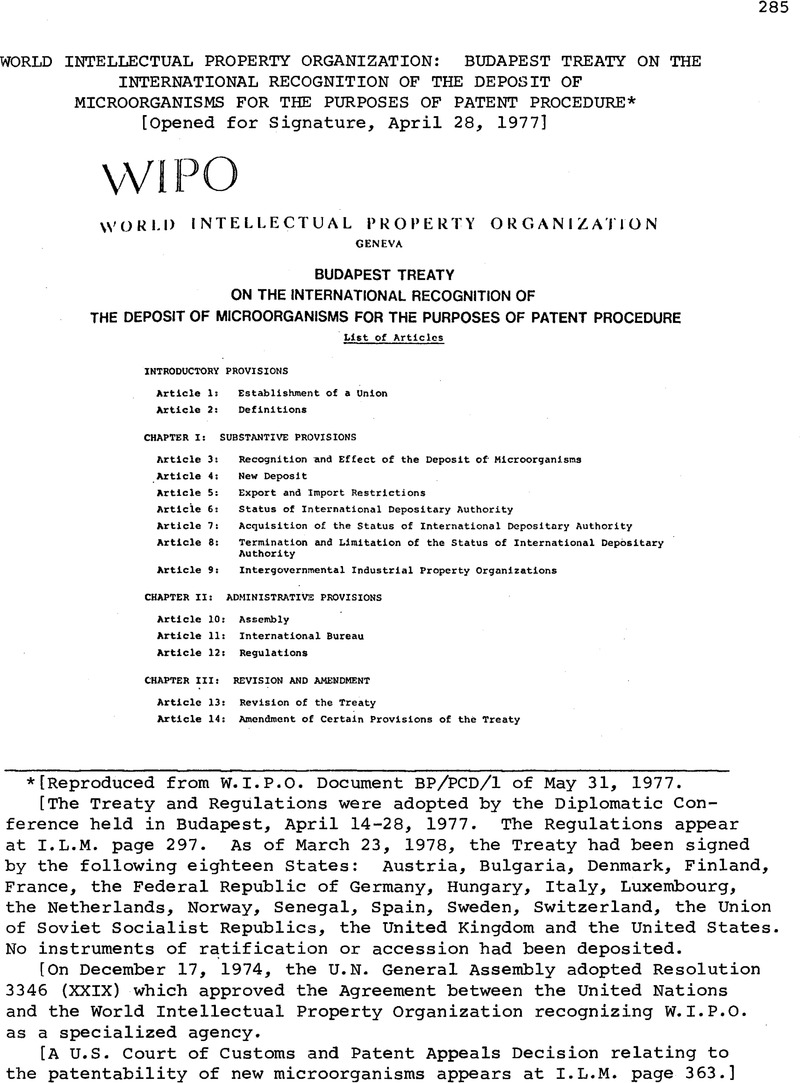Published online by Cambridge University Press: 20 March 2017

[Reproduced from W.I.P.O. Document BP/PCD/1 of May 31, 1977.
[The Treaty and Regulations were adopted by the Diplomatic Conference held in Budapest, April 14-28, 1977. The Regulations appear at I.L.M. page 297. As of March 23, 1978, the Treaty had been signed by the following eighteen States: Austria, Bulgaria, Denmark, Finland, France, the Federal Republic of Germany, Hungary, Italy, Luxembourg, the Netherlands, Norway, Senegal, Spain, Sweden, Switzerland, the Union of Soviet Socialist Republics, the United Kingdom and the United States. No instruments of ratification or accession had been deposited.
[On December 17, 1974, the U.N. General Assembly adopted Resolution 3346 (XXIX) which approved the Agreement between the United Nations and the World Intellectual Property Organization recognizing W. I.P.O. as a specialized agency.
[A U.S. Court of Customs and Patent Appeals Decision relating to the patentability of new microorganisms appears at I.L.M. page 363.]
* [Reproduced from W.I.P.O. Document BP/PCD/1 of May 31, 1977.
[The Treaty and Regulations were adopted by the Diplomatic Conference held in Budapest, April 14-28, 1977. The Regulations appear at I.L.M. page 297. As of March 23, 1978, the Treaty had been signed by the following eighteen States: Austria, Bulgaria, Denmark, Finland, France, the Federal Republic of Germany, Hungary, Italy, Luxembourg, the Netherlands, Norway, Senegal, Spain, Sweden, Switzerland, the Union of Soviet Socialist Republics, the United Kingdom and the United States. No instruments of ratification or accession had been deposited.
[On December 17, 1974, the U.N. General Assembly adopted Resolution 3346 (XXIX) which approved the Agreement between the United Nations and the World Intellectual Property Organization recognizing W. I.P.O. as a specialized agency.
[A U.S. Court of Customs and Patent Appeals Decision relating to the patentability of new microorganisms appears at I.L.M. page 363.]